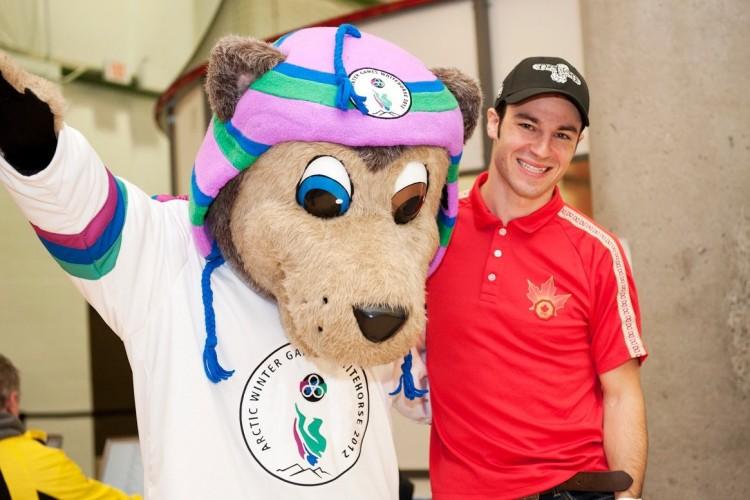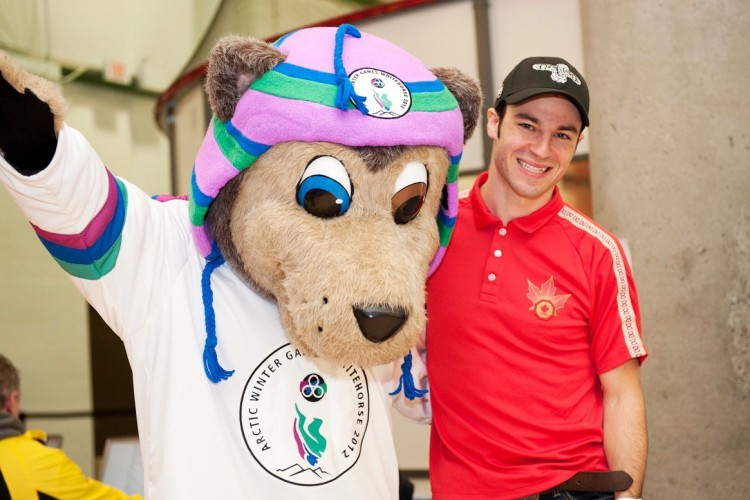Whitehorse is gearing up for the 2012 Arctic Winter Games, a six-day event that will feature hundreds of athletes from nine different regions.
Billed as the world’s largest northern multi-sport and cultural event, the games aim to promote athletic competition, culture, and cooperation between northern contingents.
In addition to the cultural and community benefits, the event, which runs from March 4 to 10, will provide a big economic boost for local businesses, says Whitehorse mayor Bev Buckway.
“It really does bring a lot of economic impact,” she said.
“If you look at the extra jobs created, and the buying from local suppliers, vehicle rentals, advertising revenues, uniforms for the Yukon teams, fuel purchasing—it’s absolutely worth the money.”
Although the games, which are held every two years in the circumpolar North, will cost an estimated $5.4 million total, they have typically generated $12 to $14 million.
Rick Karp, president of the Whitehorse Chamber of Commerce, says the international exposure will bring opportunity to the city and the territory.
“It’s about worldwide exposure,” he said.
“Aside from just local retailers doing more business, there will also be representatives from across the circumpolar North who will have the opportunity to see our community. … There is no question the Arctic Winter Games will be a good thing for Whitehorse and the Yukon.”
Cultural Festival
The Yukon government has pledged $1.4 million and the federal government has invested an additional $1 million, including $150,000 for the games’ Cultural Festival—a celebration of northern culture featuring artists from Canada and other countries in the circumpolar region.
The Cultural Festival includes performances, workshops, and visual arts exhibits, which provide opportunities for residents of remote Northern communities to experience the professional performing arts and allows northern artists to showcase their work.
The Arctic Winter Games also highlight the uniqueness of the north by featuring sports, cultural events, and arts that reflect the values and distinct traditions of northern life.
One such event category—The Dene Games—features traditional competitions of the Dene and Inuit peoples such as hand games, the pole push, and spear-throwing competitions.
In addition to traditional competitions such as dog mushing and a snowshoe biathlon, the games also include a range of mainstream sports like snowboarding, curling, figure skating, gymnastics, and hockey.
Theme Song Relay
A special feature this year will be the first-ever Theme Song Relay. Rather than a flame or baton being passed from person to person, a theme song will be passed between the nine participating regions.
The song relay will connect the circumpolar North, particularly its youth, through song and images. Beginning in Alaska, a theme song and video recorder will be passed around various communities, where people will record themselves performing their song as well as sounds and images that reflect their unique northern identity.
From Alaska the theme song and recording kit will travel to Yamalo-Nenets Autonomous District, then Norway, Sweden, Finland, Russia, and Greenland. After Greenland the song will return to Canada’s north, visiting Nunavut, Nunavik, Northwest Territories, northern Alberta, and finally back to the Yukon.
The Arctic Winter Games are the brainchild of Cal Miller, an advisor for the Yukon team in the 1967 Canada Winter Games. He dreamt of providing a forum where athletes from the circumpolar North could compete “on their own terms, on their own turf.”
Under the leadership of former Alaskan Governor Walter Hickel, Northwest Territories Commissioner Stuart Hodgson, and Yukon Commissioner James Smith, the first games were held in Yellowknife in 1970, officially opened by then-Prime Minister Pierre Elliott Trudeau.
Since then, the games have been celebrated every two years in 15 different places, continuing to swell in popularity.
The 2012 games is expected to attract more than 2,000 athletes, coaches, officials, and cultural performers to the Yukon’s capital city.





